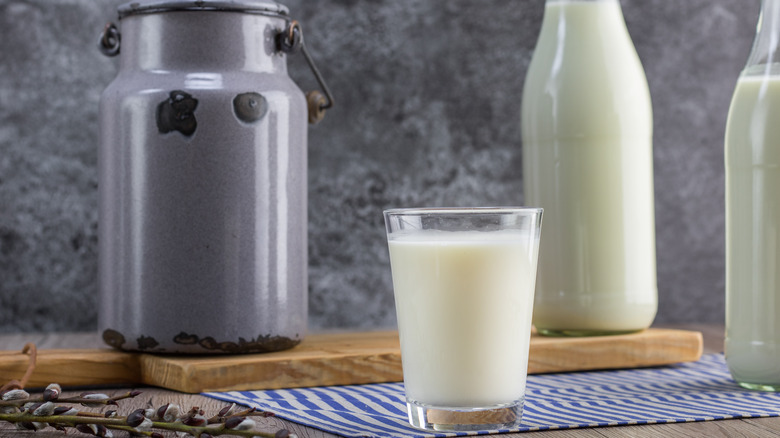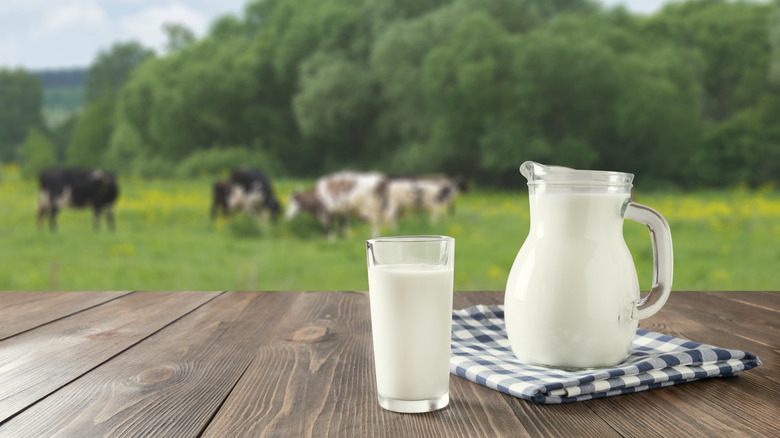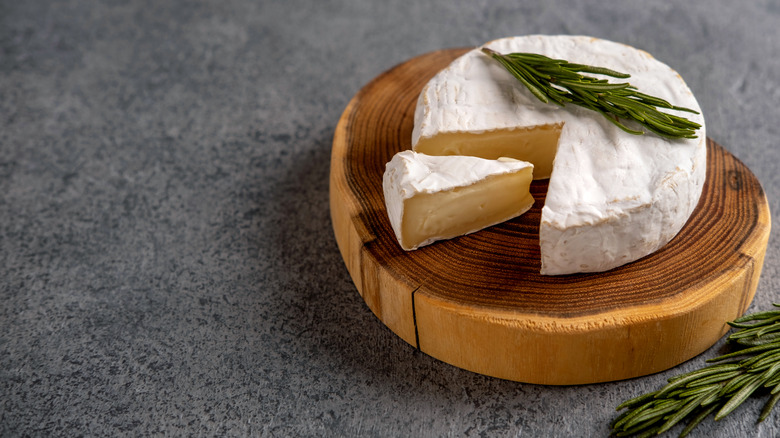Is It Safe To Drink Unpasteurized Milk?
Diet trends and health advocates on the internet will suggest all kinds of different — sometimes crazy — things in the name of health. Without doing a lot of research, it can be hard to tell which diet tips are actually safe to try and which ones are a little iffy. One of the trends you may have seen online in the category of raw food diets is drinking unpasteurized, or raw, milk.
It wasn't uncommon for milk to be unpasteurized before the 1900s, so it might seem like if we did it then, it's safe to do it now. Raw, or unpasteurized milk, is milk that hasn't undergone any processing. Instead, it goes straight from the animal to the bottle (via Healthline). Pasteurization is the process that heats milk in order to remove yeast, mold, and bacteria that are naturally found in the milk. This allows dairy farmers to produce more milk and extend its shelf life once it arrives at the local grocery store.
However, there are some risks to drinking unpasteurized milk, so you should know all of the facts before you decide to make the switch to raw milk.
Are there benefits to drinking unpasteurized milk?
Despite claims that unpasteurized milk can actually be good for you, the U.S. Food and Drug Administration (FDA) still does not recommend consuming raw milk because of the potentially harmful bacteria that it contains (via FDA). Unpasteurized milk can carry bacteria like Salmonella and E. coli, which can result in food poisoning. Since there isn't a way to tell which jugs of unpasteurized milk may contain harmful bacteria and which ones may not, it might be safer to just avoid it altogether. Some states have even taken it a step further and have made it illegal to sell unpasteurized milk in grocery stores.
Proponents of consuming raw milk, however, say that consuming milk in its natural form is a better way to get vitamins, minerals, amino acids, and antimicrobials (via Healthline). They argue that heating the milk to pasteurize it removes some of these nutrients, so the only way to continue to get the health benefits is to drink it unpasteurized. It's important to note that even though advocates of raw milk make these claims, they haven't been proven to be conclusively true.
Do the benefits of drinking raw milk outweigh the risks?
The argument in favor of unpasteurized milk comes from the idea that the process of pasteurization removes any beneficial vitamins and minerals from the milk. If you take this as fact without doing any research, it might seem like drinking unpasteurized milk is better than consuming the milk sold in grocery stores. However, it hasn't been scientifically proven that the process of heating milk gets rid of antimicrobials and fatty acids (via Healthline).
On the contrary, pasteurized milk appears to have all of the same health benefits that unpasteurized milk does. That means that you don't have to risk food poisoning in order to get all of the beneficial elements of milk. There are a few kinds of cheeses sold in most grocery stores, such as brie and queso fresco, that are made with unpasteurized milk and those don't usually cause any adverse effects. However, the possible risks of drinking raw milk may outweigh the supposed benefits. With many Americans making the switch to plant-based milk alternatives, we may not have to worry about the debate between pasteurized and unpasteurized milk for much longer.



